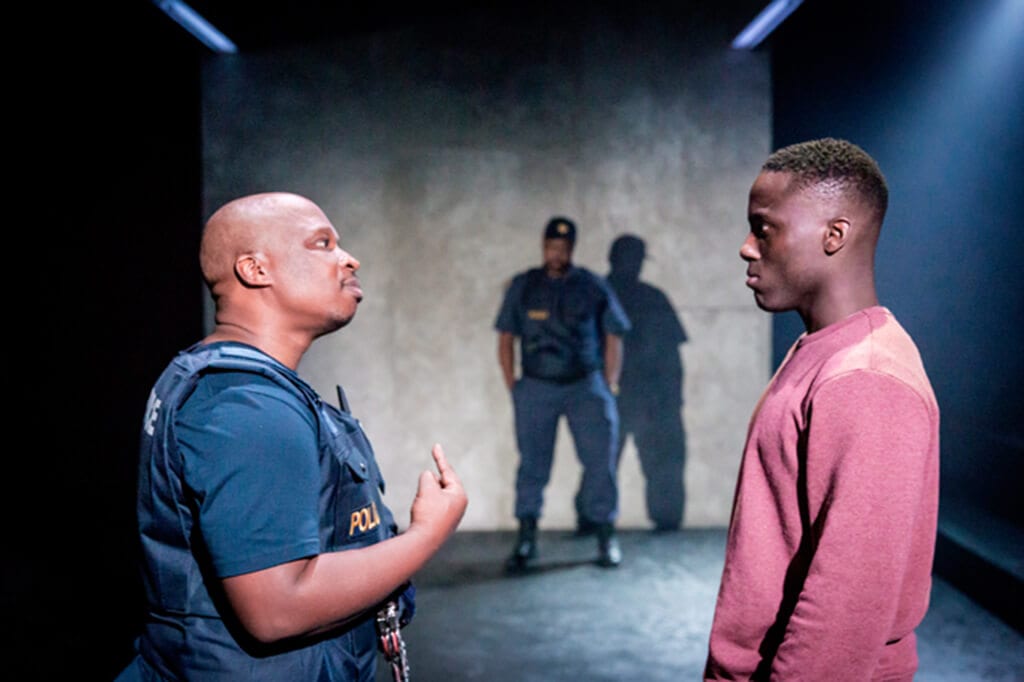Ben is a nineteen-year-old university student living in South Africa. Born after the Apartheid and having lived abroad for several years, he has “normalised” his name and forgotten his native Xhosa. The play opens with him and Skinn – a white girl who he has just met – driving home from a club. They get pulled over by two night patrol officers from the South African Police Department – one of whom is Buthelezi, an ex-freedom fighter for the ANC.
What follows is a Kafka-like descent into the disempowering and malicious mechanisms of the state: Ben is falsely accused of drink driving and helplessly demands that his rights be acknowledged, whilst Buthelezi ruthlessly exercises his authority.
And yet it’s more than a tale of institutional abuse – as the play wrestles with themes of cultural assimilation and the shortcomings of revolutionary idealism. Buthelezi’s bitterness is borne out of an objection to Ben’s apparent abandonment of his racial identity (he describes him as a ‘coconut’ – black on the outside, white on the inside). More generally, he is angry at Ben’s generation’s dismissiveness of the social changes he and others struggled to bring about – ‘We fought and died for your freedom’. Of course Buthelezi’s actions go some way towards explaining the disillusionment of Ben and others like him, as he is prompted to remark: ‘Apartheid hasn’t left. Afrikaners took off the uniform… you guys put it on’. And yet the sense is that Buthelezi’s aggression is a product of his profound disappointment that the freedoms he fought for have only partially been realised.
I See You offers no easy answers – but it does point to the genesis of ongoing state violence in South Africa, whilst also demanding recognition of the complexity of the situation. More than anything, the play suggests that institutional failings within South Africa are a legacy of warfare and division: we learn how when fighting with the MK, Buthelezi was shot in the bush by someone who also had black skin: ‘I was fighting for freedom. What was he fighting for?’ These tensions have not disappeared.
Noma Dumezweni’s directorial debut is sensitive and assured: the staging solutions are freeing for the actors, and the character portraits feel both sympathetic and nuanced. Desmond Dube is excellent as Buthelezi – understated, but with a depth of feeling in a character who could so easily have been portrayed as a plain villain.




